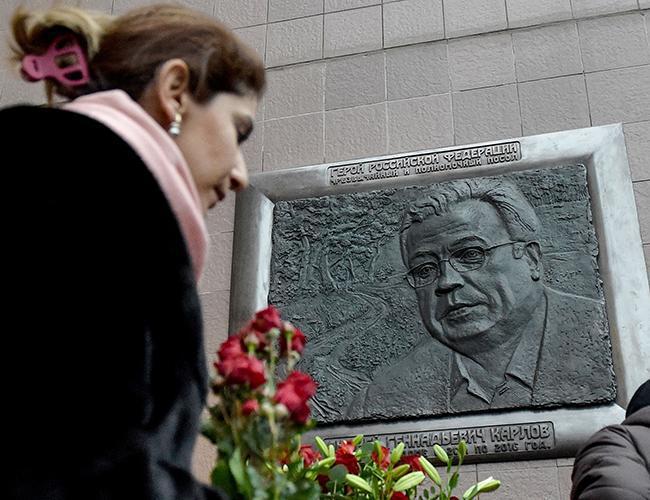
An India-based company will break into the mobile phone of Mevlüt Mert Altıntaş, the police officer who assassinated Russian Ambassador to Turkey Andrey Karlov in December 2016, after a series of unsuccessful efforts by the Turkish authorities.
According to the latest details of the investigation, authorities from the Ankara Chief Public Prosecutor’s Office initially contacted an Israeli company to crack the passcode of Altıntaş’s mobile phone. But negotiations came to a halt after the firm demanded a total of $20,000 for the service while also not guaranteeing they can crack the password. The Israeli company also demanded the mobile phone to be taken abroad for the process.
On Dec. 18, a Russian investigation team evaluating the Karlov probe was in Ankara for an event marking the first year anniversary of the ambassador’s killing. They met with officials from the prosecution, including a prosecutor of the case, Adem Akıncı, during which they discussed ways to crack the passcode.
During the meeting, authorities proposed an India-based company which had the technology to crack the passcode, stating that the firm would conduct proceedings without taking the phone abroad.
The Russian team also proposed help from Russia-based “white hat hackers” to crack the passcode.
Turkish officials had previously failed to crack the passcode and subsequently requested that Apple provides the password, a demand rejected by the Cupertino-based tech giant.
Meanwhile, ahead of the first anniversary of Karlov’s death on Dec. 19, Ankara Chief Public Prosector Yüksel Kocaman met with Erdoğan to brief him about the course of the investigation. Kocaman also discussed with Erdoğan about the negotiations with Israeli officials to crack the passcode.
According to sources from the chief public prosecutor’s office, Erdoğan instructed the authorities, primarily the Information and Communications Technologies Authority (BTK), “to do whatever is necessary” to crack the passcode of Altıntaş’s mobile phone.
Separately, during their meeting the prosecution also informed the Russian investigation team that they believed the Fethullahist Terrorist Organization (FETÖ) was behind Karlov’s assassination to “severe ties between the two countries.”
Russian officials reportedly said they shared the same opinion with Turkish officials regarding FETÖ’s involvement in the assassination.
According to a separate report by daily Karar on Dec. 20, FBI officials demanded the prosecution to provide all digital materials in the investigation file in exchange for Altıntaş’s deleted e-mail conversations on his Gmail account.
The U.S. request was immediately turned down by the prosecutor’s office and they reminded Turkish officials of the confidentiality order on the investigation following the insistence of FBI authorities on digital materials.
The report also stated that the Gülen network’s involvement in the assassination was once again revealed with the use of ByLock, an encrypted messaging application commonly used by Gülentists, among arrested figures in the investigation.
Former police officer Ramazan Yücel, who was previously dismissed from his post over alleged links to the Gülen network and arrested on Dec. 14 over the assassination, had reportedly used ByLock to communicate with another unidentified Gülenist figure who was arrested in the wake of last year’s failed coup attempt and Altıntaş.
Karlov was shot dead with nine bullets fired by Altıntaş late on Dec. 19, 2016 while delivering a speech for a photography exhibition at an arts center in Ankara. Altıntaş was later gunned down in an exchange of fire with security personnel at the scene.